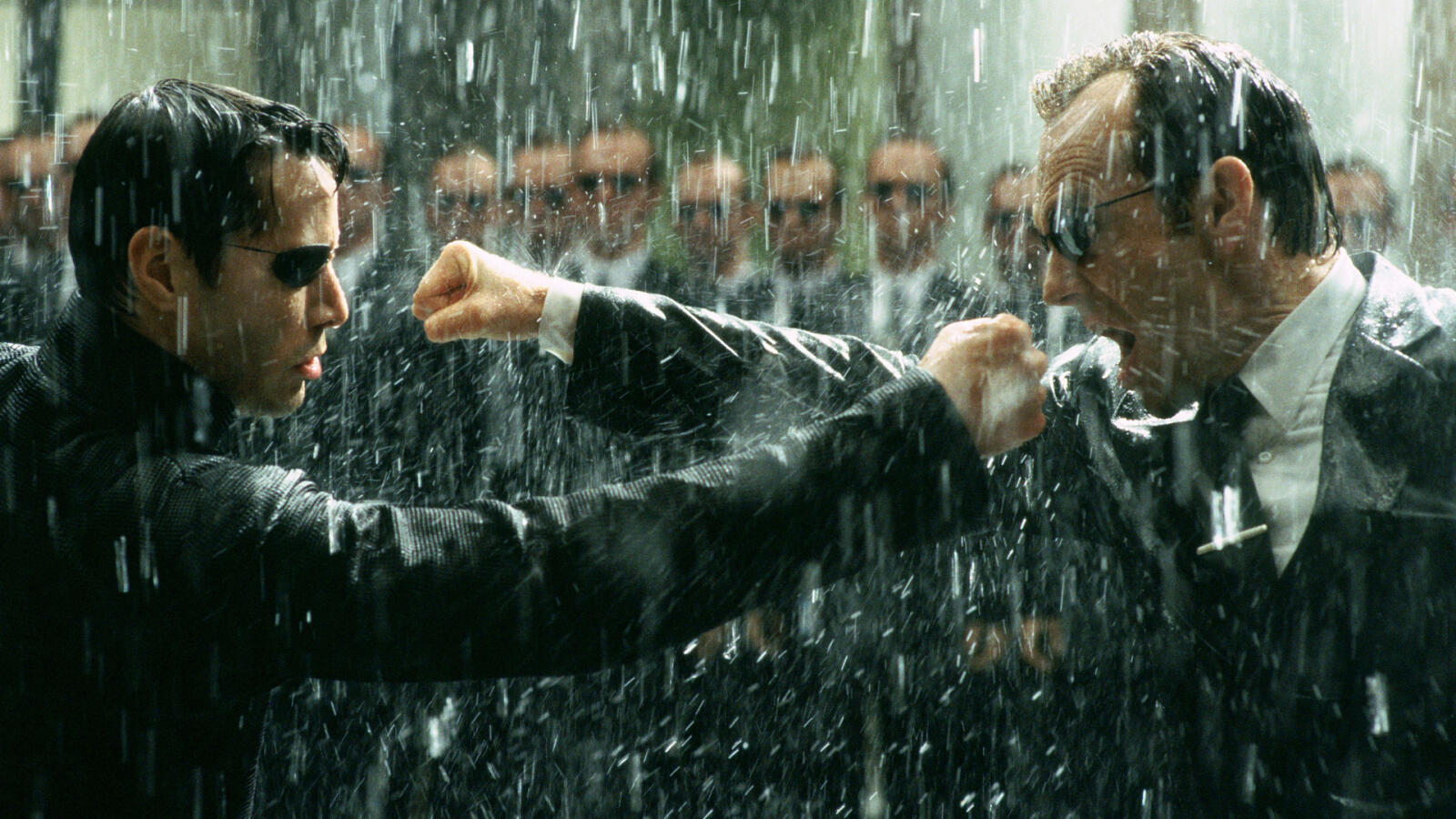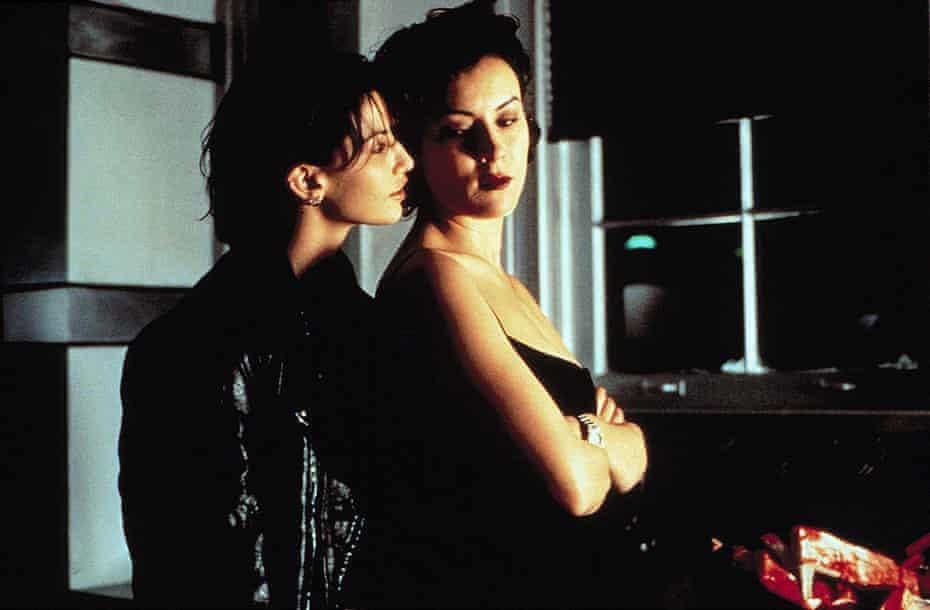In case you’re unaware, the Wachowskis are a sibling pair of writers, producers, and directors who made a name for themselves by casually changing the face of Hollywood.
They may be best known for the game-changing spectacle that is The Matrix, but their filmmaking has ever darker and leaner roots. Although they weren’t fans of the final film, they wrote the Sylvester Stallone-starring Assassins in the mid-1990s. Their efforts to remove their names from the credits may have failed, but they picked up support from producer Joel Silver on the way. They quickly moved on, choosing their directorial debut carefully and resisting studio interference. The result was the stylish adult thriller and Hollywood calling card Bound.
It wasn’t long before their legacy was overwhelmed by the success of The Matrix and the multimedia franchise it spawned. Few filmmakers can legitimately claim to have changed cinema the way the Wachowskis have. Special effects, choreography, and film techniques would never be the same again. Technical innovations like rotating cameras and bullet time would influence every action film that followed. Filmmakers either had to acknowledge The Matrix or completely ignore it.
But the Wachowskis’ main legacy might be achieving what they set out to do with The Matrix: successfully fusing action blockbusters with challenging philosophy. If you’re going to rip up the blockbuster playbook, why not do it in the final year of the 20th century?
Although The Matrix set an impossible bar, the Wachowskis haven’t stopped trying to top it in the 20 years since. They’ve turned their hands to adapting unfilmable books, anime series, and, by mentoring directors like James McTeigue, anarchic graphic novels like V for Vendetta.
Collaboration has been a vital part of the Wachowskis’ filmmaking, and not just in terms of the two of them working together. They co-directed the sprawling Cloud Atlas with Tom Twyker before co-creating the Netflix series Sense8 with J. Michael Straczynski. From thriller noir to philosophical action to diverse adaptations, the Wachowskis’ career is almost a three-act film of its own. But can you tell the act by the film? Here’s our ranking of the Wachowskis films from a directing standpoint.
The Matrix Revolutions (2003)

You can never fault the Wachowskis’ ambition. But a significant problem with this third deep dive into the Matrix is its lack of Matrix. Caught up with the dystopian man vs. machine warfare of Zion, much of Revolutions is mechs, overwhelming CGI spaghetti, and disappointing reality. Revolutions loses the magic, wonder, and creeping horror of the original’s dystopia. Its blunted philosophy is a problem in a franchise that once looked like it could have it all.
There is a chilling slice of horror at the beginning, though. And while the rain-soaked end scrap is reduced to a hyper-powered beat-’em-up, it’s epic. It’s just difficult to feel hyped when everything is soaked in misery. The Wachowskis’ solution to the war between man and machine still leaves a lousy impression. But all credit goes to the incredible universe they brought into being, even if this wasn’t quite the dystopia we wanted Neo to break.
Jupiter Ascending (2015)

“Caine .. is complicated.” So is the Wachowskis’ first stab developing an original concept for Warner Bros. Pictures in 16 years, which stands as the siblings’ final big-screen collaboration. Naturally, it’s packed with ideas and philosophical questions, including reincarnation, immortality, and good old-fashioned family politics. But the jigsaw pieces aren’t assembled as neatly as they were in The Matrix. Jupiter Ascending feels like a round-up of science-fiction cinema from the past 30 years. But while this space opera has the sprawl of a Luc Besson sci-fi epic, it misses the sharp comedy of Guardians of the Galaxy.
Jupiter Ascending fuses Homer’s Odyssey with medieval conspiracy and a slice of fairy tale. The weight of ideas is balanced by brilliantly unhinged turns from possibly the Wachowskis’ greatest cast. Eddie Redmayne in particular seems to be enjoying himself a lot. It’s difficult to think of any other filmmakers who’d have a part-wolf Channing Tatum fighting a dinosaur or leave great swathes of exposition to Sean Bean.
The Matrix Resurrections (2021)

Lana went alone for this belated continuation of the defining franchise. It’s a film that relishes in deep meta-texture, on-screen and behind the scenes. The references are almost headache-inducing, and everyone wants to follow those white rabbits. Most of Resurrections puts the Matrix franchise under the microscope, and it’s difficult to see what it’s trying to achieve. Is it a colorful dissection of The Matrix? A blockbuster joke? Are the subdued fighting and mock bullet-time all part of the point?
As ever, a Matrix film poses questions. Box office performance suggests that there won’t be a continuation any time soon, if that was even the intention. As a curious standalone, it seems less concerned with influencing the future than looking at the meaning of time and legacy. In many ways, Resurrections is an enjoyable film, but it’s going to take a while for the dust to settle.
Cloud Atlas (2012)

The Wachowskis were ready-made to film the unfilmable here. For this three-hour adaptation of David Mitchell’s metafiction novel, they joined forces with Tom Twyker to shoot different periods in parallel. It’s a vast, tonally varied sprawling epic packed with repeats and callbacks that recast its actors throughout time. That approach required its audience to pay close attention and landed it with cultural appropriation accusations upon release.
Cloud Atlas doesn’t quite prove its sourcebook filmable, but few films that have underperformed at the box office have been so loved by its cast. Hugo Weaving certainly goes beyond the call of duty and Tom Hanks, who had a lot to do in the movie, has said it’s the only film of his that he’s seen twice.
The Matrix Reloaded (2003)

The Matrix Reloaded was no Matrix. As it expanded the universe, it couldn’t help but reduce its potential. The deadline threat it introduced seemed removed from the choices posed in the first film. But despite its apparent contradiction, there’s something thrilling in seeing the Wachowskis develop their story in the green flicker of success. Reloaded is enormous fun, too. It leaps from one set-piece to the other and embraces being a sequel. Everything is bigger. Neo is supercharged, Morpheus gets his action moments, and, right at the start, Trinity gets a tragic flashback. Add in some eccentric programs and the new threat of the virus twins, and you have the Wachowskis digging deep in their imagination playbox.
It’s a bit harsh to judge Reloaded as a movie. By this point, the Wachowskis were creating myths in multimedia. Tie-in animations under the Animatrix banner fleshed out scenes and characters. The video game Enter the Matrix bridged the story between Reloaded and its sequel Revolutions. By this point, the Wachowskis weren’t filmmakers as much as storytellers. Perhaps that’s why, when this story concluded, they turned to adapting the ambitious works of others.
Speed Racer (2008)

Here was a film that was ahead of its time. Yes, Speed Racer was a major dud at the box office, but an incredible cinematic experience nonetheless. Updating an old property while retaining its essence is where many adaptations go wrong, but not here. The misadventures of the title character and his family and the big bucks machinations of Royalton Industries can’t help but pull you in. It’s a fun family film, well-cast, and expertly brought to life on screen.
The 1960s manga inspiration might not have been too familiar to audiences, but this was a respectful update as much as an assault on the senses. Bright and energetic, you need to be in the right mood for its CGI overload. But it probably is, as some die-hard fans insist, the Wachowskis’ most misunderstood film.
Bound (1996)

Here came a confident and stylish noir that announced major filmmaking talent had arrived, and the subtle suggestion of what they might achieve three years later. The directors’ broad influences were clear to see, oddly taking inspiration from Billy Wilder films for a neo-noir story that undermined assumptions and stereotypes using sex and violence.
Their directorial debut is hugely watchable and oozes sexuality. It’s stylish and humorous, and despite the problems they had locking in their actors, it was another brilliantly cast film. The Wachowskis’ ability to choose actors is a key strength, but their ability to get the best out of those actors is even greater.
The Matrix (1999)

The Matrix’s legacy is still with us and always will be. There’s the technical innovation, of course. There’s the depth it brought to action blockbusters. But most of all, it’s a virtually flawless film that stands up to endless viewings, even if its effects are creaking a bit 20 years on. The Matrix exploded into pop culture in the final year of the 20th century, but it’s still fresh and exhilarating. It’s first-class filmmaking that remains astonishing for second-time directors taking their first stabs at action. The Wachowskis wanted to prove that blockbuster filmmaking didn’t have to be mindless, and for one transformational film, they did.















Published: Feb 23, 2022 03:31 pm